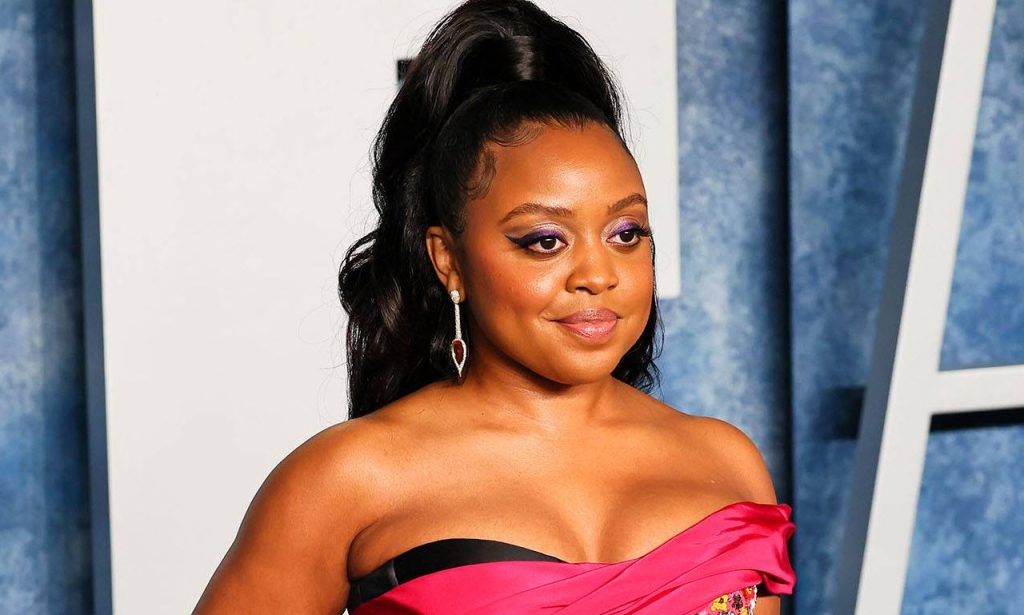Conversations about diversity have become more prominent in recent years, and they’ve extended to some of our most beloved TV shows. One such show is the iconic 90s sitcom Friends, which has recently faced criticism for its lack of representation. Quinta Brunson, the talented star of Abbott Elementary, recently shared her thoughts on the issue during her hosting appearance on Saturday Night Live.
During her opening monologue, Brunson humorously pointed out the absence of Black characters in Friends. She compared the show to her own hit series, Abbott Elementary, which centers around a group of teachers in a predominantly Black, underfunded school in Philadelphia. The contrast between the two shows is striking, with Abbott Elementary showcasing a diverse cast that reflects real-world communities.

Brunson joked about her journey to hosting SNL, saying, “I wanted to be on SNL back in the day, but the audition process seemed long. So instead, I just created my own TV show, made sure it became really popular, won a bunch of Emmys, and then got asked to host. So much easier, so much easier.” The audience laughed and applauded as she continued, “It’s a network sitcom like, say, Friends. Except, instead of being about a group of friends, it’s about a group of teachers. Instead of New York, it’s in Philadelphia, and instead of not having Black people, it does.”
While Brunson’s tone was lighthearted, the issue she raised is significant. The lack of diversity in Friends has been a topic of discussion for years, and even one of the show’s creators, Marta Kauffman, has expressed regret about it. Kauffman recently pledged $4 million to support African and African-American studies at a university as a way to address the show’s shortcomings.
Reflecting on her past decisions, Kauffman admitted, “I’ve learned a lot in the last 20 years. Admitting and accepting guilt is not easy. It’s painful looking at yourself in the mirror. I’m embarrassed that I didn’t know better 25 years ago.” She added, “It took me a long time to begin to understand how I internalized systemic racism. I’ve been working really hard to become an ally, an anti-racist. And this seemed to me to be a way that I could participate in the conversation from a white woman’s perspective.”
The conversation about diversity in entertainment is far from over, but steps are being taken to address past mistakes and create a more inclusive future. Brunson’s comments and Kauffman’s actions highlight the importance of acknowledging these issues and working toward meaningful change.


